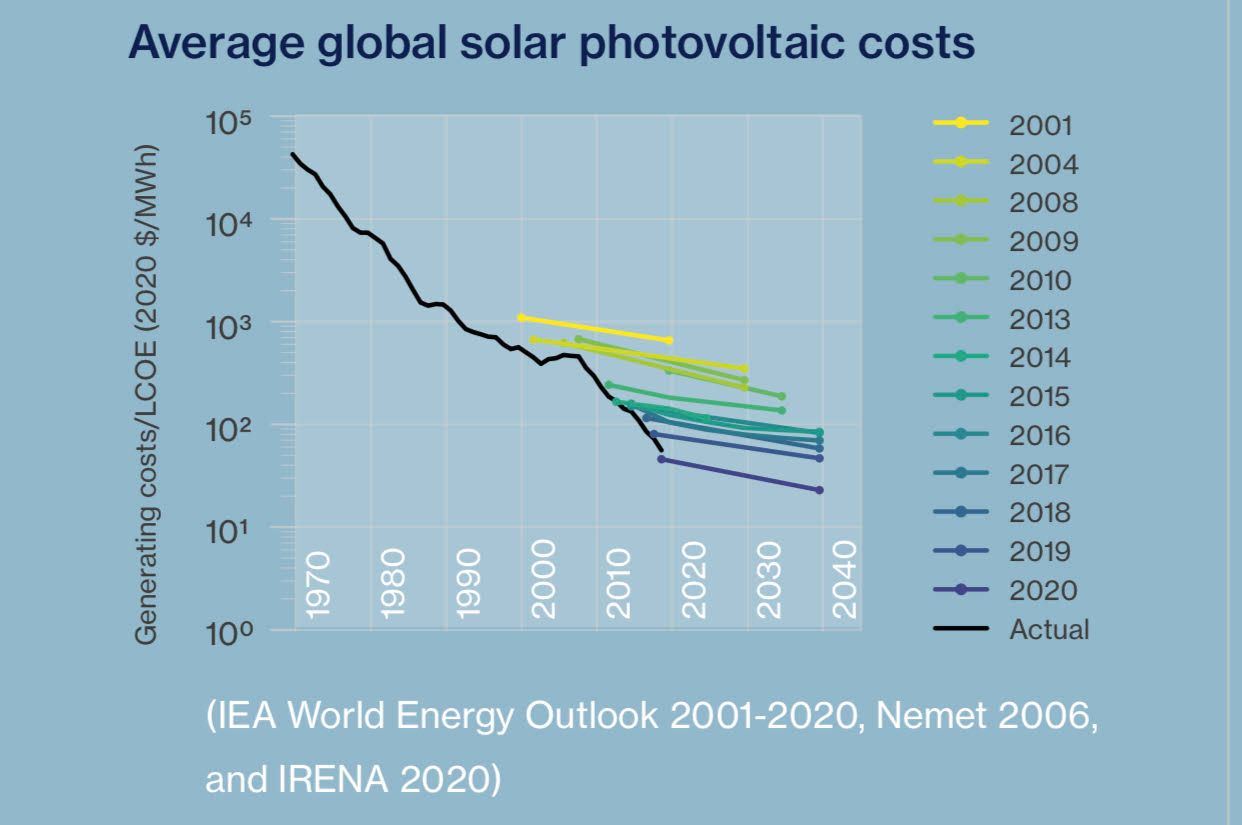Climate change is occurring exponentially, but exponentially advancing technology can combat it
According to the former NASA climate scientist James Hansen, the rate of warming caused by climate change will double over the next twenty-five years.
Exponential works in two ways — if something keeps doubling, it is exponential— and if it doubles once, then that was a one-off exponential change. But if something keeps halving, it is exponential too.
In addition to warning that temperature increases might double over the next twenty-five years, Hansen warns that today’s young people may witness a halving in the variety of wildlife.
“The planet has already warmed one degree,” he says, “if it were to increase by another degree, we would assure consequences that we don’t want.”
He adds: “The problem is that for as long as fossil fuels seem to be the cheapest energy” people will continue to burn them.”
Hansen is an advocate of carbon pricing — at the moment, he says fossil fuels are subsidised, and the true cost of burning fossil fuels is not reflected in the price.
He also says that decreased use in aerosols — in principle a good thing — has accelerated warming and advocates nuclear.
He is right, but not entirely right.
Yes, of course, climate change is scary — terrifying even, and no doubt there is nuance with odd quirks like the perverse effects of reducing the use of aerosols. Most economists would agree with the concept of a carbon tax, but it is also enormously unpopular.
A carbon tax would only gain popular support if the money raised were handed back to people, maybe in the form of a universal basic income. That way, people whose carbon footprint is less than average will be better off.
But there is another exponential force at play — multiple technologies are advancing exponentially.
For as long as fossil fuels are the cheapest form of energy, people will use them. You can tax the fuels — which is a kind of stick approach — much better would be to apply a carrot.
As Matthew Hampshire-Waugh tweeted this morning, “Wind and Solar electricity generation will end up at less than half the cost of fossil fuels.”
The great news about renewables is that the exponential function is not dependent on time; it is dependent on scaling. So every doubling in capacity leads to a further fall in cost.
Renewables are not the only piece of good news. EV take-up is accelerating. For example, in the German state of Schleswig-Holstein, 20.9 per cent of new car registrations were electric vehicles.
New German car registration data for August 2021 are available. For the first time ever, the share of new BEV car registrations exceed the 20% level in a German state: Schleswig-Holstein, one of the Northern "wind states", was #1 with 20.9% in August. German average was 14.9%. pic.twitter.com/65UpHQWk19
— Felix Chr. Matthes (@felixmatthes) September 15, 2021
As this report from the Smith School of Enterprise and the Environment highlights “Existing energy system models have consistently underestimated the cost reductions and growth potential of key renewable and energy storage technologies.”

The Smith School of Enterprise and the Environment advocates shifting the global energy mix to electricity. It says that by going this, we “may not require any declines in economic growth.” And that this transition “Can be achieved without large investments in unproven and potentially expensive technologies.” And, of course, carbon emissions will fall massively — “more aligned with Paris goals.”
In this video, Matthew Hampshire-Waugh explains how shifting towards electricity creates massive efficiency gains.
We underestimate the implications of exponential — we all do. If the rate of warming were to double, that would be terrifying.
But if the cost of energy from renewables was to continue to halve and likewise the cost of energy storage continues to halve, not only would we be able to defeat climate change, we would end up better off.

Exponential falling costs of renewables and storage can defeat an exponential increase in the rate of global warming. The solution is to accelerate that which we are doing and invest even more in renewables and storage.
We are right to worry about climate change, but we need to focus more on the solution and the incredible good news created by exponential technologies.







Related News
The AI revolution is here
Jan 25, 2023
The impossible conclusion about technology becoming less disruptive and why it is so dangerous
Jan 20, 2023
Tech bubble! Are you kidding?
Jan 06, 2023